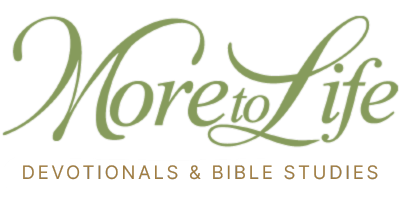“Therefore let us keep the feast, not with old leaven, neither with the leaven of malice and wickedness; but with the unleavened bread of sincerity and truth.” 1 Corinthians 5:8
The seven feasts can be organized into three sections of time. At the beginning of the year, it was the Feast of Passover, the Feast of Unleavened Bread, and the Feast of First Fruits. The Feast of Unleavened Bread immediately follows the Passover and lasts seven days.
In Exodus 12, God commands His people to remove all the leaven from their homes and eat only unleavened bread, or bread made without yeast. Leaven, even in minimal amounts, can alter a large batch of dough. Leaven during the Passover in Egypt and other parts of scripture symbolized sin and immorality. God was teaching His people, through this metaphor, that sin, even in small amounts, can alter someone’s life in a negative way. He was trying to teach His people with the illustration of leaven that a little may not look harmful, but can have a detrimental and harmful impact on salvation and purity.
During the Feast of Passover, people were to remember their deliverance from Egypt. Passover was to serve as a reminder of God’s provision. It was also to remind them to never allow the bondage of sin to steal their freedom.
Now, with the Feast of Unleavened Bread, the children of Israel are to embrace a new way of living. They were now living outside the borders of Egypt, but they had to work hard to get the spirit of Egypt out of their hearts. God was calling them to live a clean, pure life that was set apart. They were to get all the sin (leaven) out of their lives.
The feast was an invitation to embrace a new way of living, to have a fresh start, and to walk in God’s holiness.
We can Walk In Freedom
For us today, this feast reminds us that salvation (symbolized in the Passover) is just the beginning. Once God delivers us, we are also called to live differently; we are not to remain the same. Jesus chastised the Pharisees who were clean and pristine on the outside, but the inside of their vessel was filthy. God wants our hearts to be clean. I don’t want to proclaim Jesus with my words, but deny Him with my lifestyle. I want my heart to proclaim His goodness.
Paul echoes this in 1 Corinthians 5:7, urging believers to, “Get rid of the old yeast, so that you may be a new unleavened batch, as you really are. For Christ, our Passover lamb, has been sacrificed.”
The Feast of Unleavened Bread is an appeal to examine our hearts and to remove sin from our lives. We need to be willing to allow God to search our hearts and make us new every day.
Journal Prompt:
What “leaven” (sin, mindset, habit, or influence) might God be calling you to remove from your life right now? How has it subtly affected your heart or your walk with Him? Write a prayer of surrender, asking God to help you walk in sincerity and truth, and reflect on what a fresh, unleavened life might look like for you.
Prayer:
Lord, thank You for carrying my sin to Calvary so I could be delivered and set free forever. I pray that You would help me to live an overcoming life, to walk in Your holiness, and to rid my life of any leaven that could harm my life and the lives of others. Cleanse me today, renew my mind, and help me to become more and more like You.
Devotion written by Angela Overton.




Comments are closed.